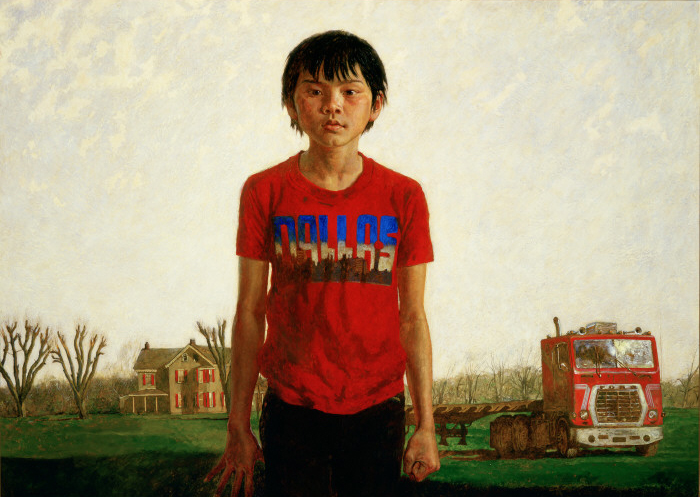On Being American and More
By Center for Civic Reflection

On Being American and More
By Center for Civic ReflectionThere is a lot of talk these days about immigration—about fences, amnesty, dreams, and citizenship. Much of this talk is polarizing and aimed almost entirely at influencing policy rather than understanding one another and even ourselves.
In a series of community discussions held throughout February 2013, the Center for Civic Reflection and Chicago Public Media worked to help us all step back from the polarization and the policy and create a space where Chicagoans talk with one another about the questions and complexities that affect us on a daily basis: whether we think of ourselves as Americans or hyphenated or some other thing, whether we are citizens or longtime residents or visitors, how we think we are seen by others in this country, the relation between our communities of origin and our communities of culture, and what it means to be American now, in our connected and often conflicted condition of global interdependence.
The goal of the discussion posted here and the broader initiative launching in 2013 is to get Chicagoans – within and across particular communities – talking about our multiple attachments and allegiances, about those parts of our culture that we recognize as ours, or as worth jettisoning, or as worth keeping, and about the ways our particular worlds do or don’t go together. In getting us talking about our differences and our points of overlap, we hope to strengthen our sense of what we share and to deepen our experience of living, with and among others, in 21st century globalized segregated diverse polyglot mixed-up Chicago.
Bilingual/Bilingüe
My father liked them separate, one there,
one here (allá y aquí), as if aware
that words might cut in two his daughter’s heart
(el corazón) and lock the alien part
to what he was—his memory, his name
(su nombre)—with a key he could not claim.
“English outside this door, Spanish inside,”
he said, “y basta.” But who can divide
the world, the word (mundo y palabra) from
any child? I knew how to be dumb
and stubborn (testaruda); late, in bed,
I hoarded secret syllables I read
until my tongue (mi lengua) learned to run
where his stumbled. And still the heart was one.
I like to think he knew that, even when,
proud (orgulloso) of his daughter’s pen,
he stood outside mis versos, half in fear
of words he loved but wanted not to hear.— by Rhina P. Espaillat
from WHERE HORIZONS GO, 1998

Davis Reek, University of Chicago
Rebecca Katz, Jewish Council On Urban Affairs
Asaf Bar-Tura, Jewish Council On Urban Affairs
Daniel Greene, Newberry Library
Mauricio Roman, CAAAELII
Monika Starczuk, ICIRR
Pingjing Zou, Chinese American Service League
Maria Hadden
Izabela Grobelna, Chicago Cultural Alliance
Thomas Toney, Chicago Cares
Lauren Pabst
Matt Sweeney
Terri Johnson, C-Change Consulting
Leandre Niyokwizera, Global Citizenship Experience Charter School
Emma Withrow-Van Roosenbroek, The Chicago School Of Professional Psychology
Claudia Lucero
Luis Gutierrez, Latinos Progresando
Jessica Rio
Sara Schwanke
Hind Makki
Zaki Chairi
Adam Davis (facilitator), Center for Civic Reflection